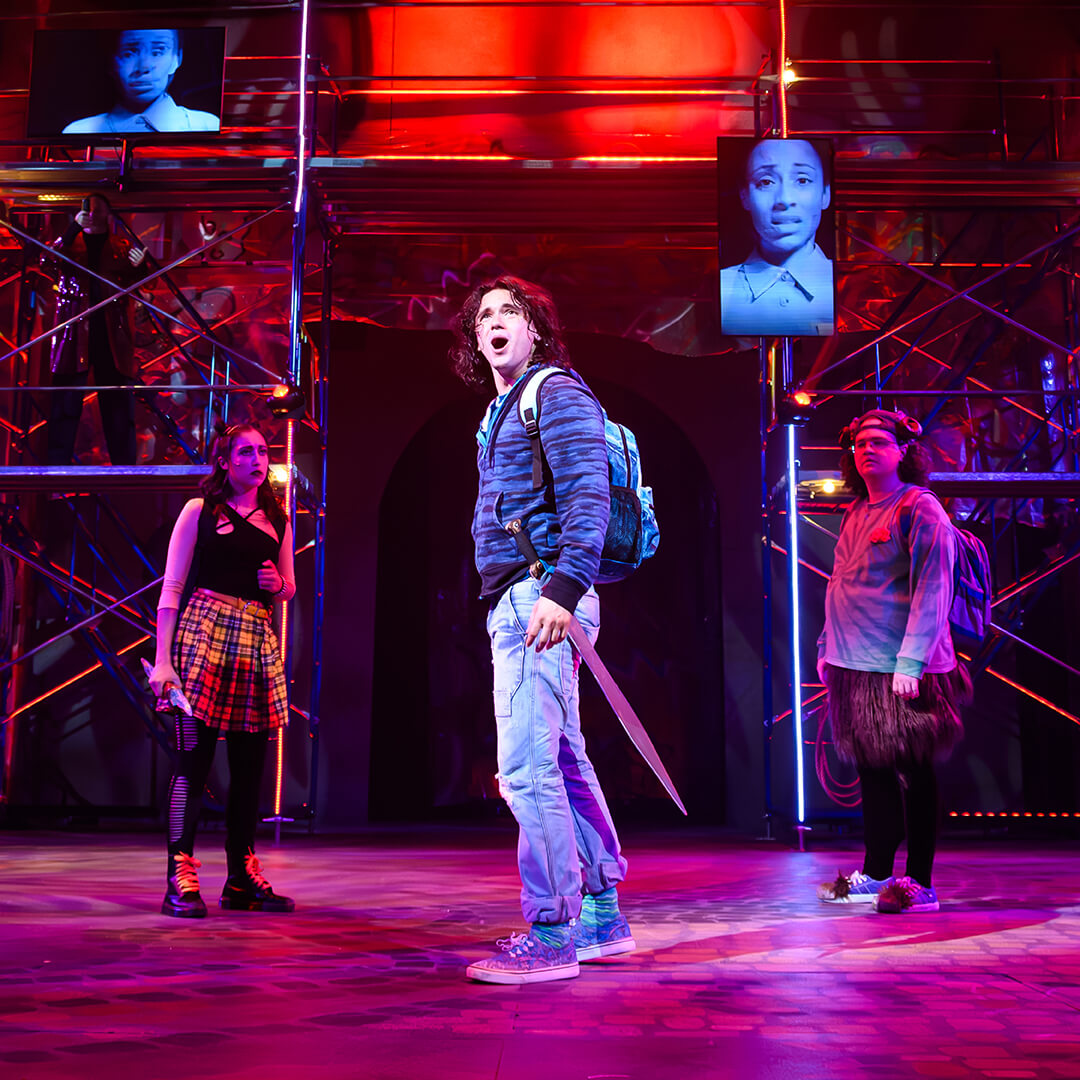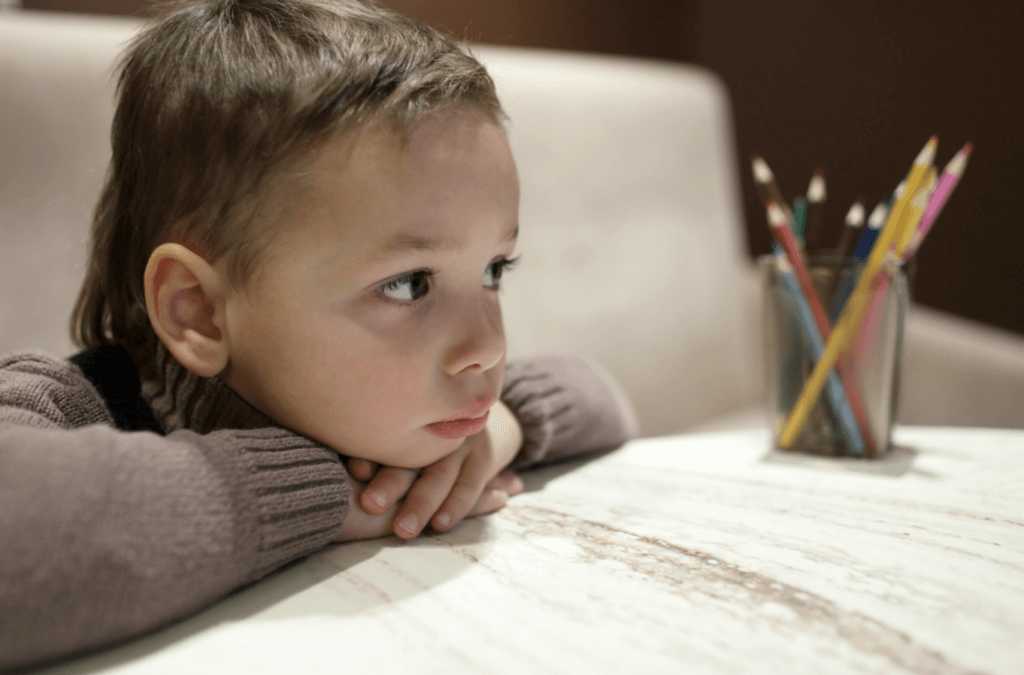
Theatre at Home- The Lightning Thief: The Percy Jackson Musical
Continue the adventure after the show...
Learn MoreOrlando Family Stage
The Finest in Family Theater
1/11/2021
This piece was inspired by the events of 1/6/21, but Orlando Family Stage understands the value of tools like this for teachers and parents and hope this resource is useful for any of the difficult conversations you may have with the young people in your life.
Where do I begin?
We start from a place of empathy. At Orlando REP, we believe in the power of the arts to support students’ social emotional development and understanding. Empathy is an essential practice we can instill early on in our young people and something that many of them intuit. The definition of empathy is the ability to understand and share the feelings of another. This guide supports an empathetic approach to potentially difficult conversations that may need to occur after a local or global event, crisis, or even an issue in your own classroom or home.
How do I facilitate the conversation?
We often know we want to hold space for a conversation, but struggle with how. Starting with naming that everyone is safe is important. Additionally, gauge the level of risk for each person. Is this a one-on-one conversation, a group discussion, visual board/collage, or even a personal writing exercise? Set appropriate boundaries and expectations from the very beginning – these can be co-created with the participant(s). Examples include – one speaker at a time, poster dialogue (a silent exercise where students respond to prompts (and each other) on posters around the room), the option to step back or opt out etc. Depending on the circumstances, consider when you might hold the conversation – immediately or after a few days have passed.
Discussion starters:
|
 |
When in doubt, write it down.
Depending on age and ability, independent writing is a useful tool. It creates less pressure for the participant and the facilitator. Additionally, participants are able to organize their thoughts before sharing with others.
The power of aesthetic distance.
The arts are a powerful tool to provide aesthetic distance between a subject and subject matter. If it’s too challenging to speak about the specifics around an event or crisis, explore the use of story, visual art, movement or drama activities.
Self Care
While these conversations are meant to be a way to help your students process what is happening, it is important to take care of yourself as well. Making space for self care in the classroom could be beneficial for classes that are struggling to find meaning or express their thoughts and emotions. Be ready to help your students explore what to do with those emotions.
Don’t underestimate how hard these conversations can be for your students, but also for yourself. Know the resources in your community for additional or specific questions related to the topic.

*******************************************************
Example Facilitation Plan for Teachers
Activity One: Three Breaths
Invite participants to ground themselves where they sit or stand. They may close their eyes. Inhale and exhale with an intention for each breath. The first might be to feel grounded and safe. The second intention might relate to preparing for a conversation, knowing they can participate as much as they feel comfortable. The third might be to leave anything behind that they don’t need at this moment.
Activity Two: Writing
Ask students to respond to a writing prompt. Be inspired by the open ended prompts from above or try more specific based on your needs. If needed, invite students to explore and question the behavior or actions that you need to respond to versus identifying people or things or views as “good” or “bad.” This separation might be helpful in a space with diverse perspectives
Other possible writing activities could be framed in ways to include your community, such as:
Activity Three: Sharing through movement
Students may need to physically move in order to help them alleviate any stress or trauma they may be experiencing. This is a great opportunity to incorporate movement exercises that provide self-expression, relaxation, breath, and community building.
Some of these exercises can include:
Activity Four: Frozen Image Series – Now what?
After you’ve had time to process and make space for conversation, writing, and movement, invite participants into a creative and theatrical response to the question – now what?
Create a frozen image series inspired by vocabulary words like:
|
 |
Students can create individual or group tableaux (frozen images or statues) with their bodies. This is a chance for them to embody and interpret vocabulary words that move us forward to a place of peace, positivity, action, or change. Invite students to observe each others’ images and ask them the following questions:
Activity Five: Three Breaths
End your facilitation with three breaths. This might invite people to reflect on what was shared with a breath, remember a reflection or “aha” moment they discovered with another breath, and to leave anything unhelpful behind with their final breath.
***Note: Consider how you transition in and out of an experience like this. Do you invite participants to move physically to another space, make sure it happens right before snack or recess, or even at the end of the day so they can continue to process if needed with family/friends.
*******************************************************
Resources:
Articles with advice on talking to young people in the days after a major event.
A list of news sources designed for young readers.
A collection of resources and explore strategies to engage students by connecting to and honoring their cultures, experiences, and backgrounds.
To download this blog in PDF format, click HERE
Don't miss out on the magic. Grab your tickets now and
make unforgettable memories at Orlando Family Stage!